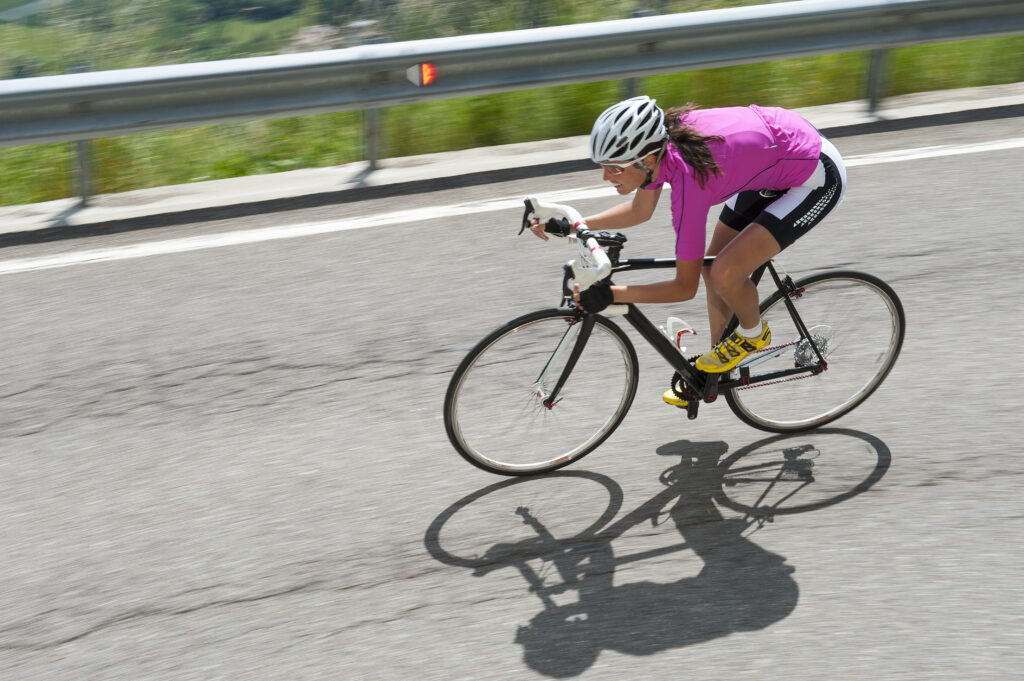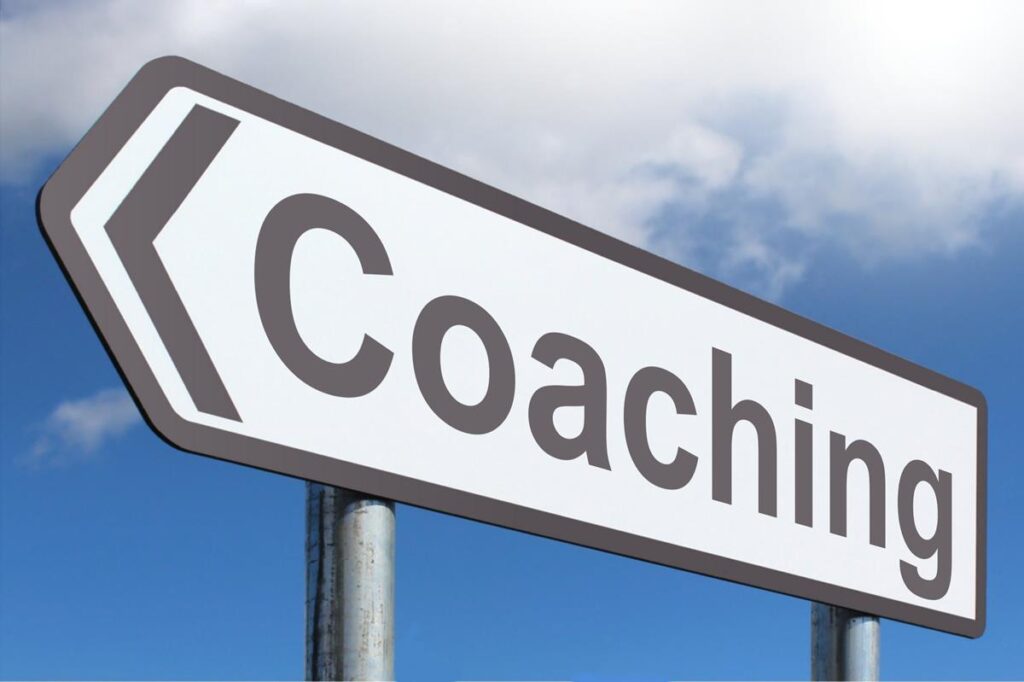
I recently received a couple of enquiries from people nervous about cycle coaching. I think this is a pity as cycle coaching should be for all. There really shouldn’t be barriers preventing people from improving their cycling and gaining more enjoyment.
I’ll describe in this post five reasons why I think cycle coaching should be accessible to all.
Barriers to cycle coaching
I understand there are many reasons why people might be anxious using a cycling coach. But, broadly speaking, most feel that cycle coaching is ‘not for people like me’.
Now, I don’t know how other coaches operate but I have no restrictions on the types of cyclists I coach. I will work with anyone who needs help with their cycling. That could be to improve race performance, or to gain more enjoyment from riding by being fitter. To me, these goals have equal value because they both improve the quality of a person’s cycling experience.
1. Cycle coaching is for people of all abilities
I don’t think client ability should matter to a good coach. I genuinely gain equal satisfaction from training somebody to complete a charity ride as I do from coaching a professional. This is because I love the process of coaching and care passionately about seeing people improve their cycling. I devote equivalent energy to my riders regardless of their ability or the level of competition. You’d probably be surprised to learn that some of my most ‘professional’ athletes don’t even compete!
This is an important point because people sometimes worry about the reaction they’ll receive when making a cycle coaching enquiry. Young riders may even expect there to be some form of selection process before I’ll work with them. I have no such requirements.
My overall aim as a cycling coach is to help somebody improve beyond their current level. I consider the starting point as irrelevant. In fact, you could argue that novice cyclists have more to gain from coaching.
2. You’re never too old
I think that, generally speaking, young people are often more open to coaching than older people. There are exceptions, of course, but young people are generally more conditioned to receiving tuition and coaching. Schools and community groups actively seek young people’s participation in art, music, sport, drama and other pursuits. I think this can make it a little easier for a young person to try a new activity or take up coaching. Although, not all kids are extroverts, and some may need more help getting involved.
I recently receive an enquiry from a non-competitive cyclist interested in improving their fitness. They were concerned about how I would respond and commented that many coaching websites intimidate them. They felt that these sites aim to attract younger, faster riders with competitive potential. Older people more interested in improving fitness so they can ride a little further, or struggle less on climbs, were clearly not the target audience.
This is such a shame because learning, health and fitness should be lifelong pursuits. Everyone should be able to pursue their interests, regardless of age.
As an example, one of my clients decided to take up Karate as a second sport. I ensure her training’s tailored, not only to her cycling, but to her Karate too. She also coined the term ‘fit for 60’ which is a focus of all the training I prescribe. It is about ensuring she has good health and well-being as she approaches her 60th birthday.
3. Cycle coaching isn’t just for ‘sporty types’
I’ve spoken to enough people who would like to do a sport or physical activity but don’t feel ‘sporty’. The problem is that they have never fitted into that group of perceived ‘sporty people’. I think this may stem from bad experiences of school PE or believing gyms are filled with fit, muscular people. They often worry that ‘sporty’ types will negatively judge them.
I have sympathy because it is something I too have experienced. I loved sport as a child but always felt I struggled to fit in with team sports like rugby and football. My preference was for individual sports like swimming, running and badminton. It was only when I started cycling and joined a very down to earth cycling club that I truly felt comfortable. Nowadays I work with athletes in a range of sports with no such feelings. But when I think back it was really a big deal for me.
I think it is only natural that we all want to fit in by looking the part, saying the right things, and not doing anything stupid. But to enjoy cycling you really don’t have to have the latest gear or conform to some stereotype of what a cyclist should be. You can look across the different branches of the sport to see that cyclists come in all shapes and sizes. Some cyclists, like Gary Fisher, have even gained positive notoriety by being different.
In my opinion, there is a sport for everyone. If you weren’t sporty at school, it was probably because they didn’t teach cycling! With a little coaching and encouragement many ‘non-sporty’ people can easily be as good or better than archetypal ‘sports jocks’.
4. Good cycle coaching is supportive and encouraging
I’m not an expert in barriers to sports participation so I will avoid a detailed discussion of the topic. Needless to say, the issues are complex. However, I will reflect upon some comments female cyclists have made to me about their experiences of cycle coaching. I must stress that this isn’t all coaches. There are some excellent practitioners who wouldn’t behave like the following examples.
Sadly, many women I speak to have felt patronised by male coaches and team directors. They have been arrogant and taken the view it’s ‘my way, or the highway’. Obviously, this isn’t necessarily isolated to women, but it seems to be a more common female experience.
I have also met several female cyclists who have been overtrained by both male and female coaches. The reasons for this are unclear as I have seen fewer problems with overtrained men. I think there is a tendency for some coaches to treat women, or young riders, as ‘smaller versions of men’. I’ve have even heard of women being told to act ‘more like men’ when they train or race. I suspect this thinking contributes to some, or all, of the overtraining.
I accept these stories are not helpful if you are nervous about cycle coaching. You certainly won’t allay your fears. However, it doesn’t have to be like this. There are many good coaches who strive to coach the individual. They understand that age and gender are two of many key factors deciding how a cyclist should be trained.
Research shows that a positive coach-athlete relationship improves self-esteem, athlete satisfaction and performance. A sense of ‘shared purpose’ is key to developing a belief in the ability of the partnership to bring success. This is why I like to work in a collaborative style.
5. You don’t need a power meter or heart rate monitor
I’ve now written several cycle training plans for people without a power meter or heart rate monitor. It isn’t difficult to do, but it does require more time and consideration to analyse the cyclist’s training data.
Perceptual measures of training intensity are perfectly good alternatives to heart rate and power. I have written in previous posts about the Talk Test and the Rating of Perceived Exertion (RPE) as effective methods of setting training intensity. RPE can also be used to quantify overall training load using the Session RPE (sRPE).
If you are not convinced, remember that cyclists achieved all manner of feats of endurance in the days before training tech. I suspect for some coaches the non-tech alternatives are less well understood or a bit of a hassle. However, a good coach should be able to work with or without technology. The principles are essentially the same.
Mark Walker Cycle Coaching is welcoming to all
As I stated earlier, for me coaching is all about the process. I set out to help people for who they are: the person in front of me. For me, difference is to be celebrated.
I have honestly enjoyed working with everyone who’s employed me as a coach, regardless of the discipline or level. By embracing a diversity of clients I’ve had an amazing coaching career in a wide range of cycling disciplines from para-track to the Tour de France to e-bike enduro. I’ve not only worked in cycling but also triathlon, running, swimming and motorcycling too. And I have been privileged to have been invited on these journeys by some of the most amazing people!


